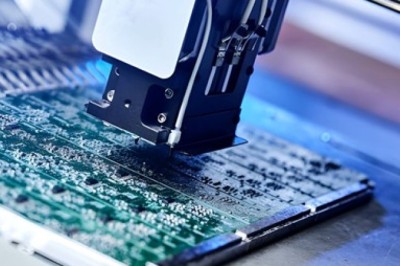views

There are many reasons why you would like to pursue a career in machining. And, if you have a passion for making things, a job as a CNC machinist might be the right choice for you.
In the last couple of years, CNC machines have become a core of the manufacturing industry, and individuals who operate them are a crucial part of the manufacturing process. These machines are able to perform a diverse range of operations like drilling, shaping, cutting, and finishing raw materials such as wood, plastic, and metal and forming them into components.
Of course, these machines need assistance since they can’t work independently. But what does the CNC machinist job entail? What do they do every day, and what kind of education do they need?
Let’s take a closer look and see how you can build a career in machining.
What is a CNC machinist?
To put it simply, this is a person who operates a CNC machine. The machinists first receive computer files or sketches, and thanks to their knowledge and skills, ensure the CNC machine has the right file type.
Basically, their job is to produce digital instructions, which this machine uses to make parts. They use their skills to correctly set up a machine with the right tools. A machinist will also monitor the CNC machine to make sure it produces parts according to a specification or a design.
What are machinist responsibilities?
They have pretty much the same responsibilities every day. First, they need to make sure that equipment is set up correctly, that everything is working smoothly, and that they are using quality material.
Machinists also need to monitor materials stock and capacity while keeping an eye on maintenance. They might also need to check quality control and report any issues to CNC programmers. Depending on their role, machinists might operate only one machine or work several of them on the floor.
These professionals work in a factory setting. Many of them have regular business hours; however, overtime and weekend work are common. Job responsibilities also depend on machinist careers. For example, juniors mostly work under supervision, while seniors are often responsible for the entire team and work closely with CNC programmers.
Basic job requirements
To start your career in the machining industry, you will require at least a high school diploma. The next step would be an apprenticeship, which allows you to gain necessary CNC technical skills you couldn’t get through the schooling system.
After finishing their apprenticeship, some will attend community college and even get an associate degree. But, overall, you don’t need a college degree to get a job in the machining industry. We should mention that some education programs cover a wide range of subjects and feature classes on CAM/CAD operations, CNC turning parts, design technology, and more.
Key skills
You need to know how to read blueprints and work on the computer. Also, math skills, manual dexterity, attention to detail, and accuracy are necessary. The ability to solve problems is another highly appreciated skill, and you must be alert at all times because the problem may appear at any time.
Keep in mind that this type of work demands a certain level of stamina and physical fitness, the hours are long, and this work involves a lot of walking and standing.
How to break into the industry?
Research your duties
This will determine your specific job title. For example, there is a difference between a maintenance and a production machinist.
Take additional course
This is absolutely necessary. As we already mentioned, you need a high school diploma, but also an additional course that will help you perfect your skills and provide much-needed training. You can also take courses in blueprint reading and drafting. Don’t forget about trigonometry, algebra, and general math, which you will be using day-to-day.
Finish apprenticeship
It will usually take up to four years to finish this program, during which you will learn different aspects of machining. Also, you will get familiar with basic operations like CNC and CAD programming, as well as metallurgy.
Get credentials
Based on where you live, your state or country may issue a credential that will help you advance in your career.
Conclusion
Now that you know the necessary steps to become a CNC machinist, there are a lot of job opportunities you can pursue. Overall, this is a well-paid occupation and if you are good with design, math, and have an eye for details, go for it.























Comments
0 comment